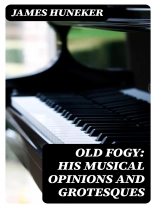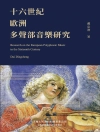In ‘Old Fogy: His Musical Opinions and Grotesques, ‘ James Huneker crafts a vibrant literary tapestry that merges humor, critique, and personal reflection. This collection of essays offers an engaging exploration of the musical landscape of the early 20th century, deftly balancing profound insights with whimsical anecdotes. Huneker’s prose, rich and evocative, mirrors the complexity of the compositions he critiques, providing readers with an immersive experience that encapsulates his nuanced understanding of music’s impact on cultural discourse. As a result, the book serves both as a commentary on contemporary musical practices and a showcase of Huneker’s unique stylistic flair, revealing the author’s fervent passion for his subject matter. James Huneker, an esteemed American music critic and writer, emerged during a time when music was rapidly evolving, facing the challenges of modernism and shifting tastes. His extensive training in music and literature, coupled with his experiences in New York’s vibrant cultural scene, informed his distinctive perspective. Huneker’s love for both classical and contemporary compositions makes him an astute observer, allowing him to passionately engage with various musical styles and their cultural implications, as showcased in this collection. ‘Old Fogy’ is an essential read for anyone interested in the intersection of music and literature, offering a unique voice that captures the essence of an era in musical evolution. Huneker’s irreverent and insightful commentary invites readers to ponder the value of traditional sounds in a swiftly changing landscape. This book is perfect for music aficionados and casual readers alike, promising both entertainment and intellectual stimulation.
Sobre el autor
James Gibbons Huneker (1860–1921) was an American music critic, art critic, and essayist known for his intellectually provocative and culturally rich writings. A versatile figure in turn-of-the-century intellectual circles, he left a lasting legacy on American literature and arts criticism. Huneker’s work is characterized by his expansive knowledge, insightful criticism, and eloquent prose, with a particular focus on the European cultural scene which he often juxtaposed against the American context. In ‘Old Fogy: His Musical Opinions and Grotesques’, Huneker demonstrates his trademark wit and cultured perspective through the guise of a curmudgeonly old critic who resists modern trends in music while offering sharp and often humorous commentaries. Through a collection of essays and reflections, Huneker reveals the complexities and evolution of musical expression and contributes to the broader discourse on art criticism. His literary style, marked by urbane and pithy observations, made him a prominent voice among both his contemporaries and posterity. Huneker’s influence extends to shaping the tastes of early 20th-century readers and informing the critical standards in evaluating music and the arts.












